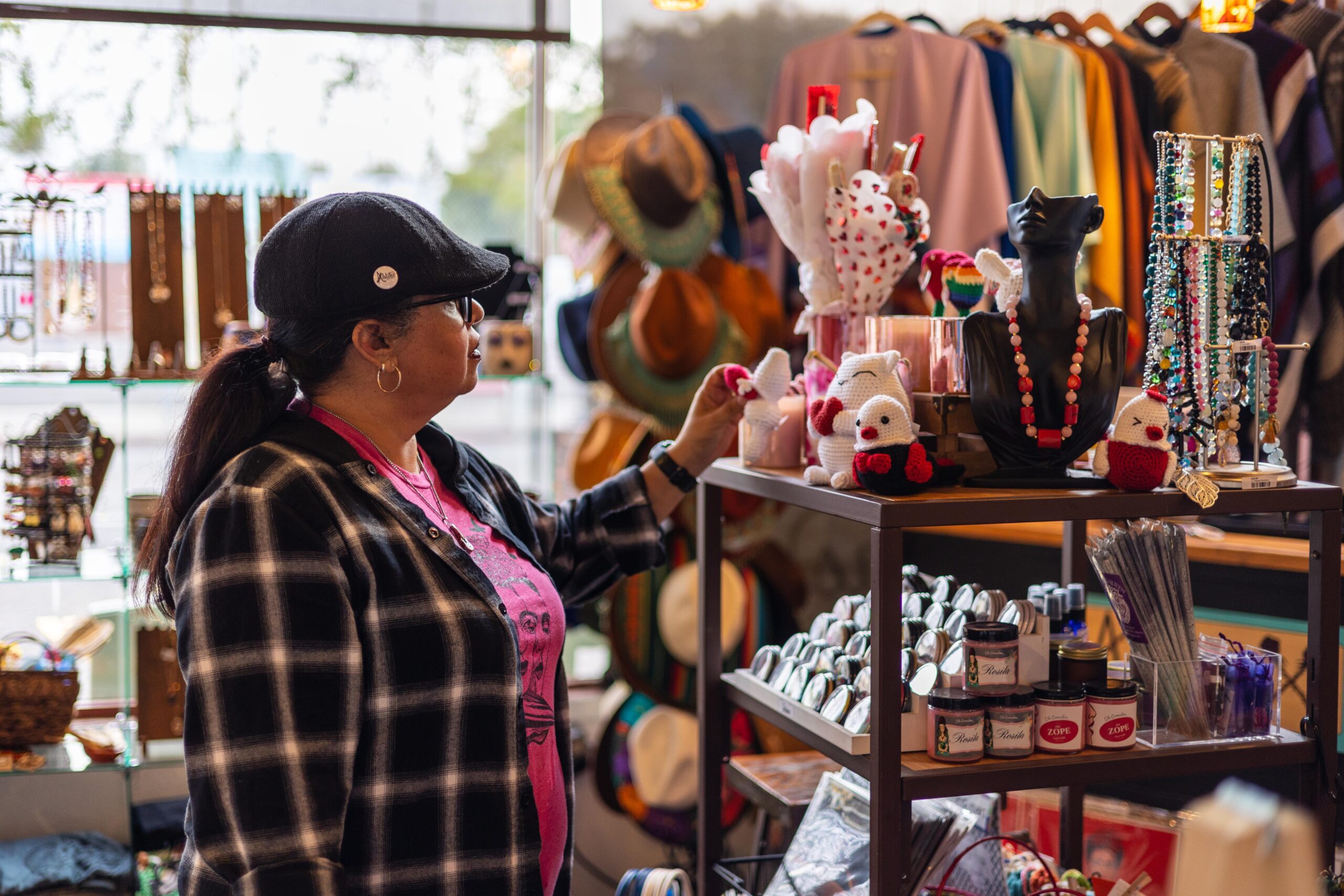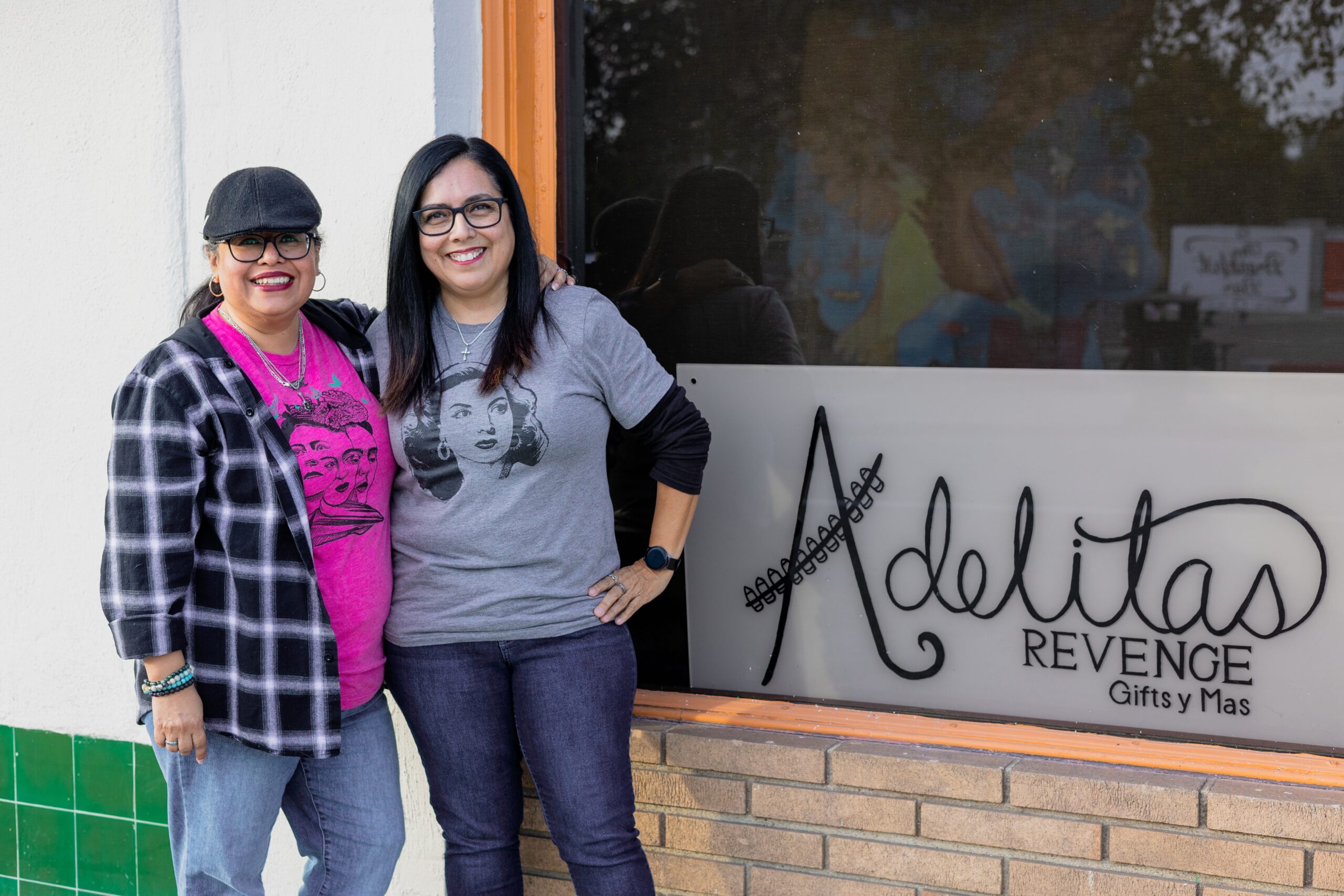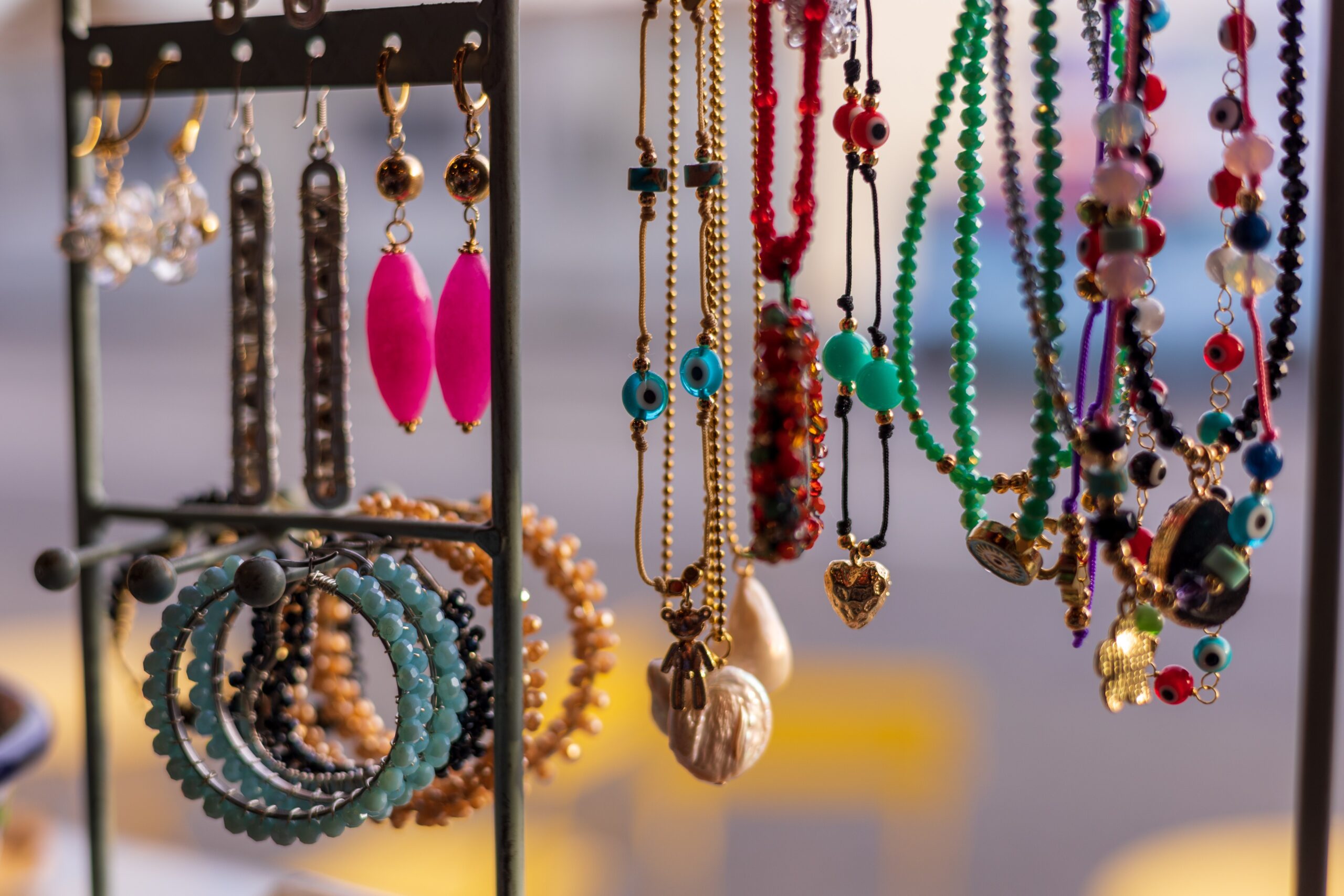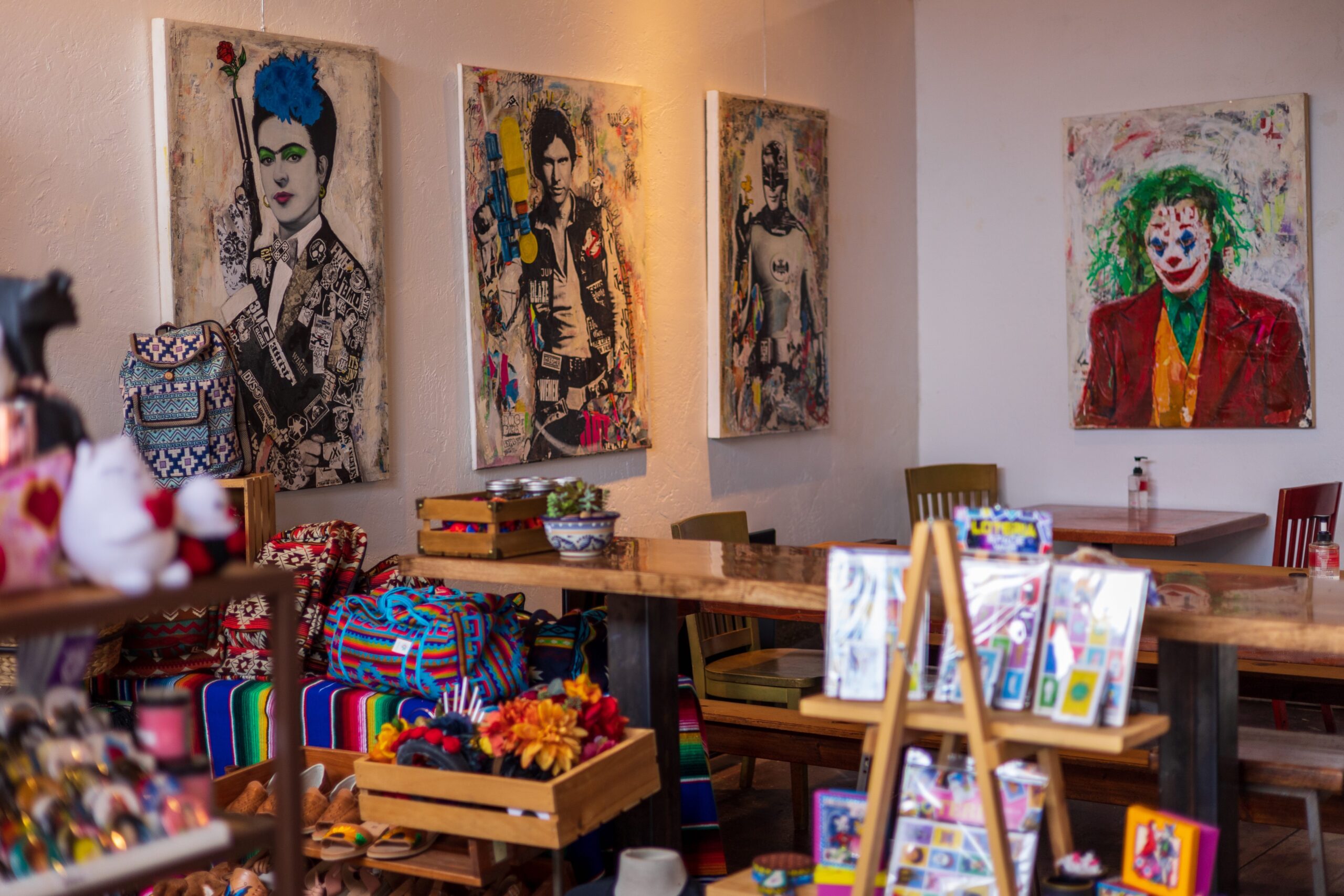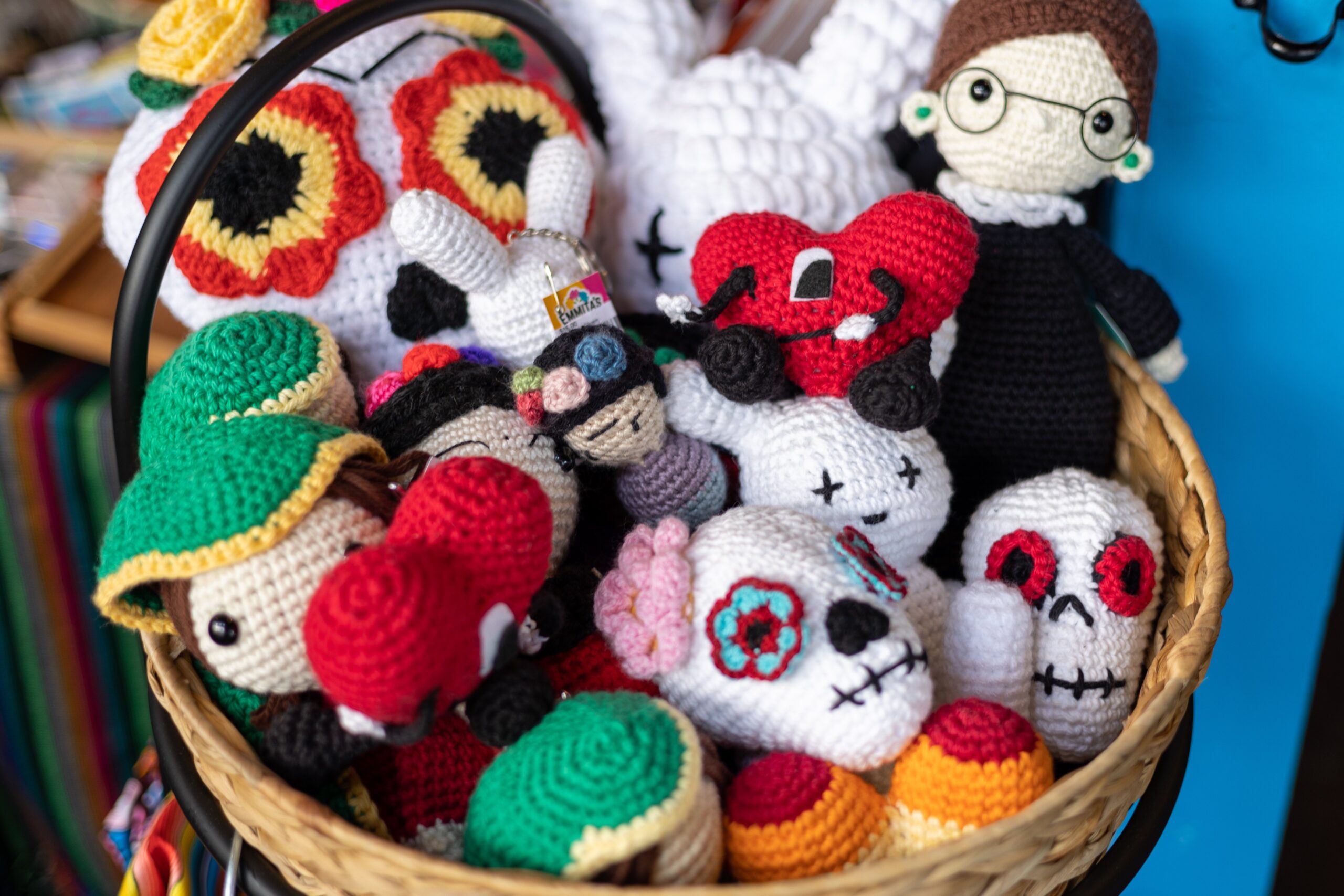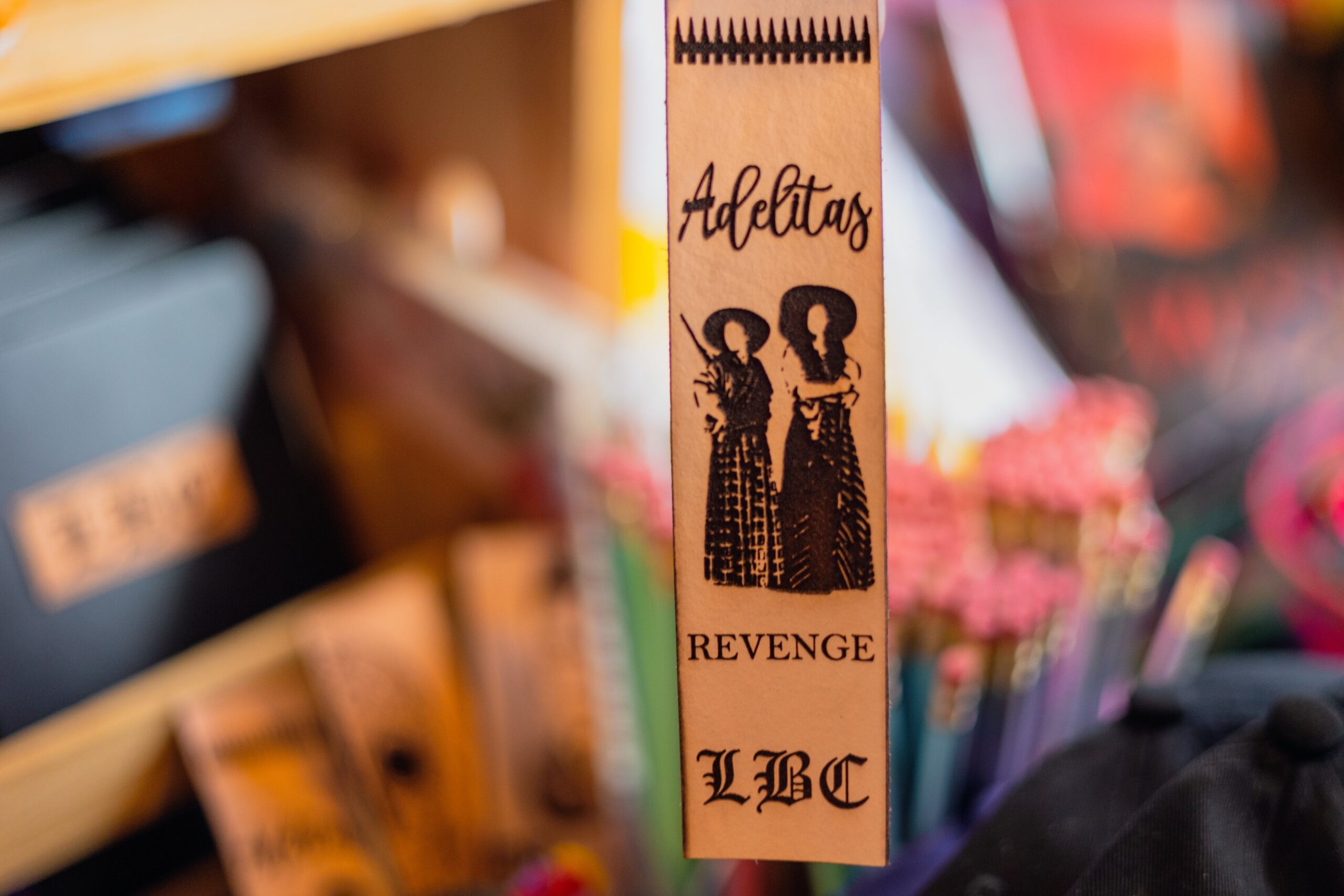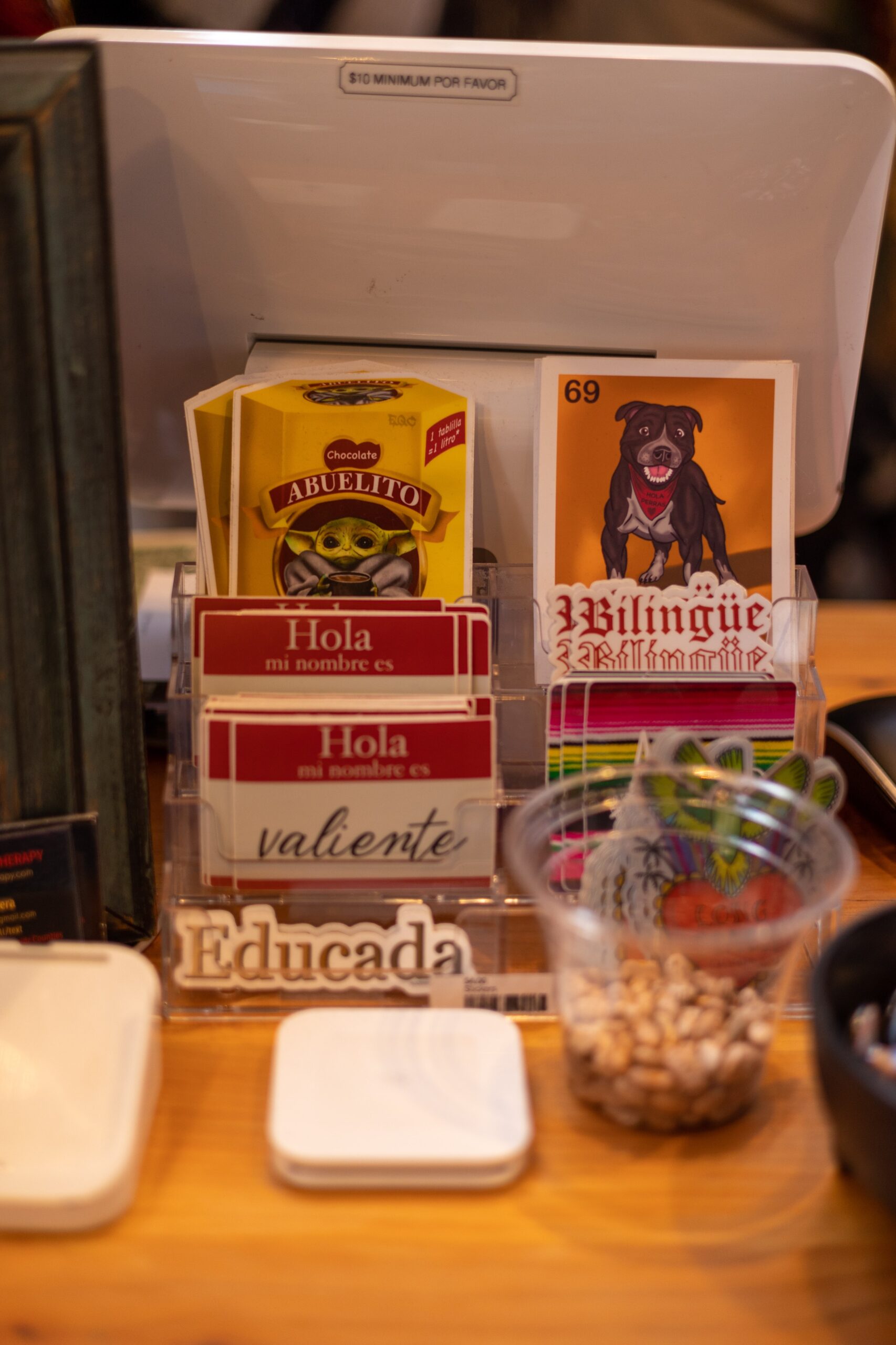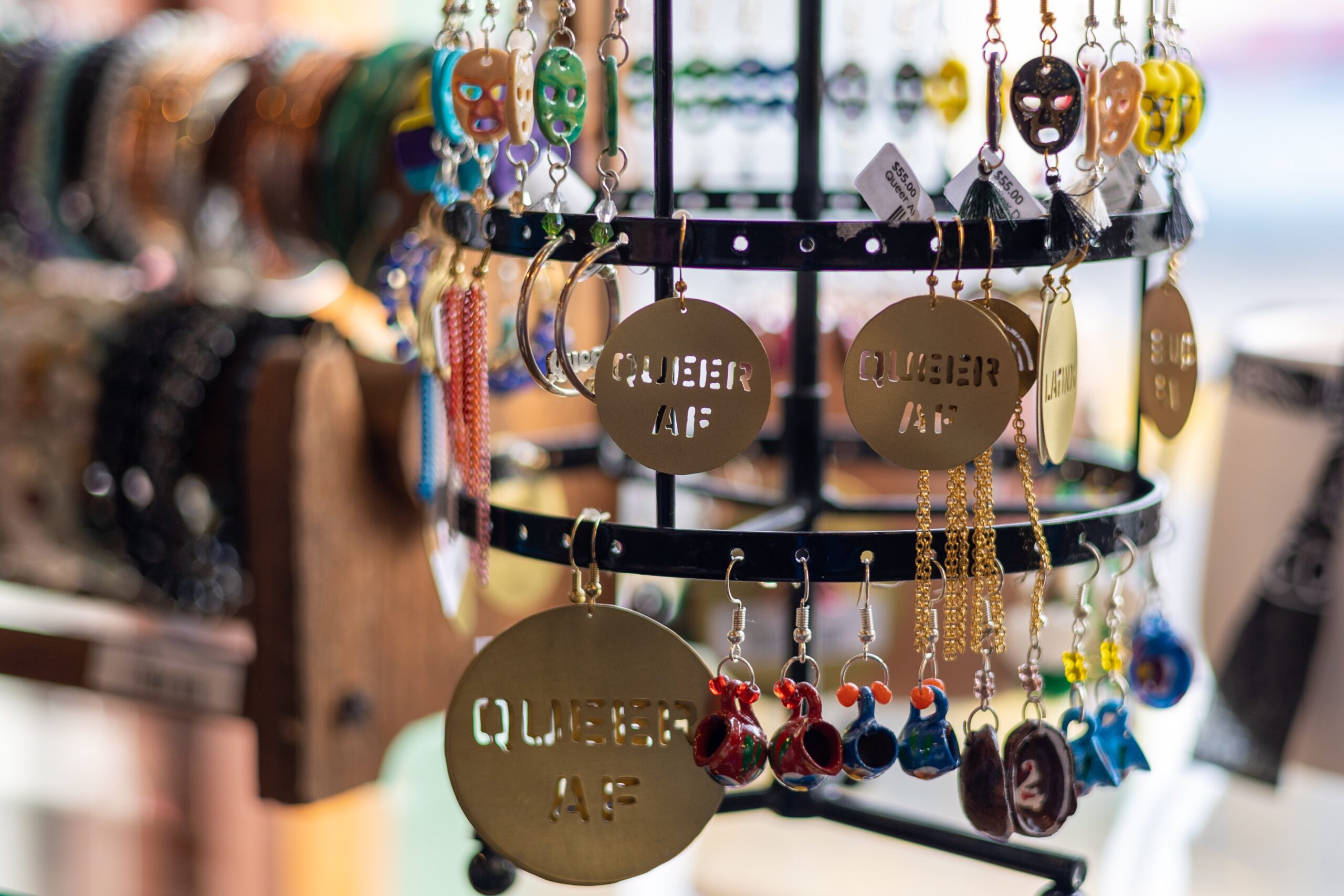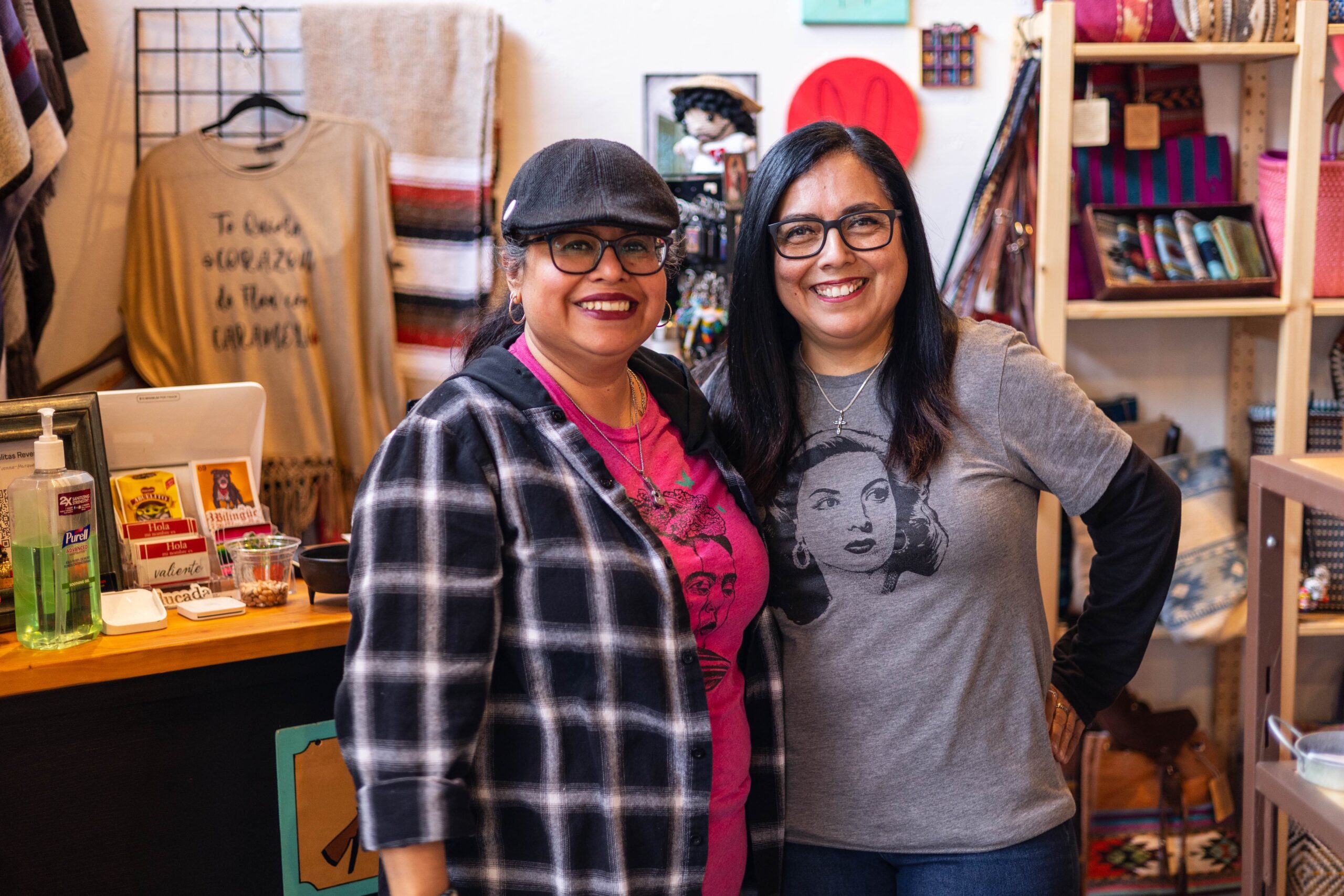Pride & Resilience
Words and Photos by Rachel Ramirez
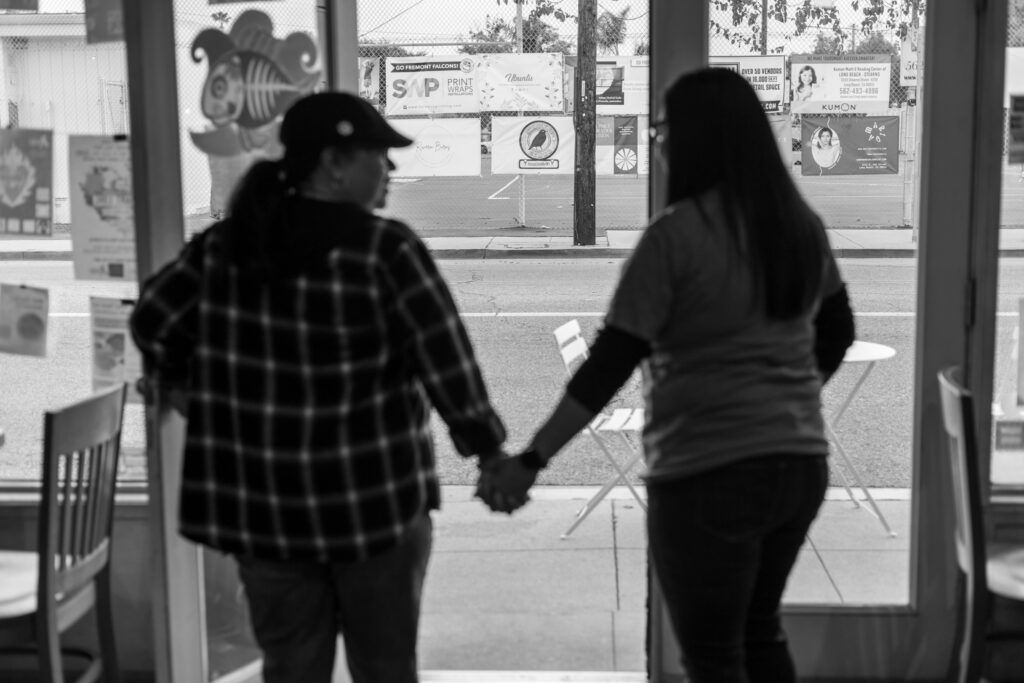
I’ve never been interested in being invisible and erased.
Laverne Cox
“You are welcome,” says a miniature sign on a window. The words are written against the background of a pride flag, a conglomerate of colors that represent the diversity of the LGBTQ+ community. A sunflower yellow-trimmed door of the tiendita (little shop) greets you. The interior is lined with shelves full of bright-colored artwork– jewelry, clothing, matchboxes, keychains and much more– inspired and made by Latinas. Adelitas Revenge, based in the heart of Long Beach, California, is a queer, indigenous, Chicana gift shop.
The owners, Marina Carranza and Yvonne Marquez, are a Chicana lesbian couple who have a passion for representing LGBTQ+ Latina artists. The couple started dating in 2018, and when the pandemic hit, they were working jobs that did not fulfill them. Their business started small at first, selling Mexican folk art and homemade salsa at pop-up markets, such as the Queer Mercado, throughout SoCal. Finally, the women were given an opportunity to open a store in Long Beach.
“We said, This is it, let’s do it. Let’s highlight women– indigenous, Chicana, Latina women.’ And that’s who we have in our store right now,” Marquez stated.
California is home to a growing LGBTQ+ (lesbian, gay, bisexual, transgender, queer) community. According to the Public Policy Institute of California, the state has the largest LGBT population, about 2.7 million, in the United States. Additionally, according to the Williams Institute, out of this population, there are an estimated 350,000 Latinx adults who identify as LGBT. This makes California the state with the third-highest Latinx LGBT population.
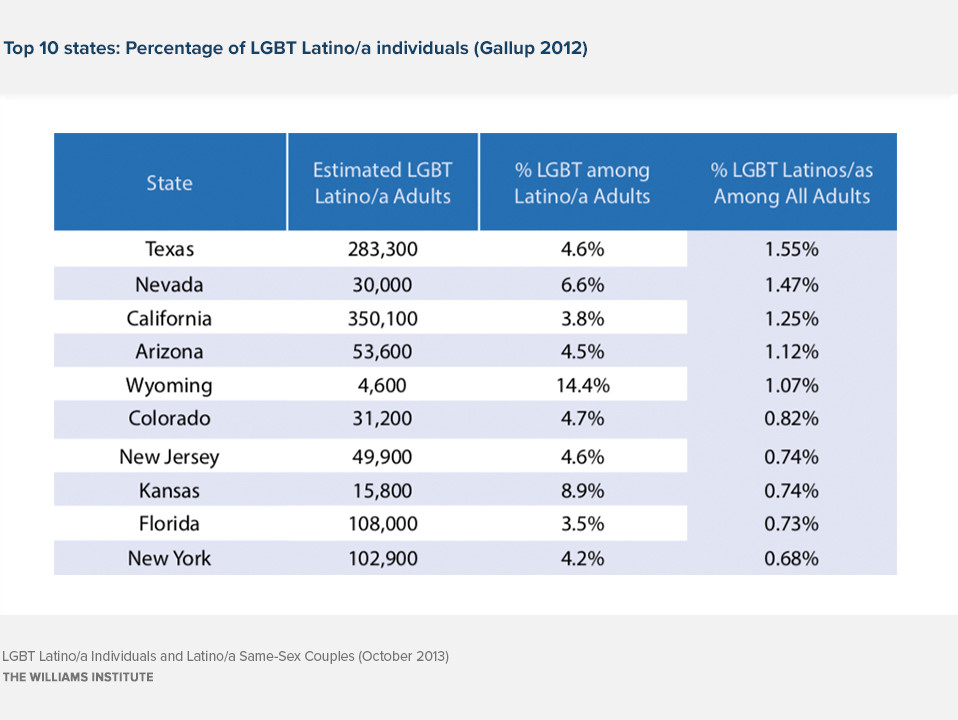
Carranza and Marquez mostly sell pieces by queer Latina artists because of the lack of representation in businesses. They had a vision to create a space that highlights both Latina and queer identities.
“We don’t have a space. When you go into small boutiques or small businesses, you mostly see the mainstream. There’s not really a place for us,” Marquez said, “There’s more [than] just Taco Tuesday and Cinco de Mayo, you know. There’s culture, there’s art, there’s beauty.”
Initially, they felt invisible, now Marquez and Carranza are breaking barriers to create a place of love and hope for women who looked like them.
Adelitas Revenge slideshow gallery:
RELIGIOUS BARRIERS
While the owners of Adelitas Revenge welcome everybody, not everybody welcomes those who are like them. The LGBTQ+ community has faced a long history of being unwelcomed in the Catholic Church. Most Latinos identify with Catholic faith and culture or at least come from a conservative religious background. According to Statista, 57% percent of Latinos claim to be Catholic. The Catholic Church teaches that homosexuality is a sin, and this belief results in discrimination against the queer community, creating difficulties for them to come out. According to AP News, in a recent statement, Pope Francis said, “Being homosexual isn’t a crime.” However, while he thinks being LBTQ+ is not a crime, he believes acting on it is a sin.
“My mom was very Catholic–as most of our families are– so she didn’t understand it. As time went on, she understood that this is who I am. But for the most part, it was kinda rough coming out,” said Marquez.
She recalled the day she was kicked out of her own home after coming out at 18. Sadly, youth homelessness is an epidemic, especially for those in the LGBTQ+ community. Although LGBT youth make up only 7% of the general youth population, they have a shockingly high rate of homelessness and housing instability. According to a study done by Lesley University, of the 1.8 million youth that become homeless every year, about 40% of them identify as LGBT. According to True Colors United, family conflict is the most common cause of all youth homelessness.
In contrast to Marquez, Carranza was embraced by her family. “My mother accepted me. I didn’t have a problem with [coming out],” she said.
Carranza also noted that she is religious and pondered over the connection between her faith and sexuality. “I don’t think God chooses. God doesn’t judge [me] for me and my faith. I’ve always had faith in God, and I know God loves everybody,” she said.
Many other religions teach that same-sex behavior is a sin, such as the Mormon Church, the fourth largest denomination in America.
Kamille Escobar, who identifies as Mexican and bisexual, grew up surrounded by religion. Her dad grew up LDS (The Church of Jesus Christ of Latter-Day Saints) or Mormon, and her mom and extended family grew up Catholic. According to Pew Research Center, 57% of Mormons say that homosexuality should be discouraged.
Due to religious beliefs, Escobar has not come out to her dad or extended family yet. “With LDS, [being LGBTQ+] is more accepted [now], but it’s still a very closed-off concept. Since my dad grew up in the church, he has a very closed-minded opinion on this. And the Catholic extended side of my family is definitely closed off as well,” she said
CULTURAL BARRIERS
In addition to religious barriers, Escobar said that culture has an effect on queer Latinos coming out and being accepted.
“Being Latina or Hispanic, culturally, we are very closed off when it comes to different opinions, views and identities. Culturally, it’s really hard to feel like you can openly talk about stuff that is not ‘normal’ or viewed as standard,” she said.
While Escobar’s mom is aware that she is not straight, she has not explicitly come out to her due to these cultural barriers.
“The whole idea of coming out is that you’re always going to have to always explicitly say, ‘Hi I’m bisexual, I’m this, I’m that.’ So I never did that with her like I did with my sisters. I never said, ‘Hey. Can I sit and talk to you about my sexuality?’”
Escobar said that the way her mom watched her grow up, have relationships with people and talk about sexuality hinted to her mom that she was not straight.
“I have not said anything, but she had [told me], ‘Hey, it’s okay if you are.’ As a mother, I feel like she knows me very well, so I did not say anything” she said.
Escobar said that although she knows her mom would support her, she still feels a lot of cultural pressure from her family.
“I didn’t feel it within friends, I felt it within family. Not pressure to come out, but pressure to not come out. Because culturally, [in] Hispanic culture, it’s not very accepted, and especially Mexicans. So I felt really pressured from my family’s culture [to] hide that aspect of myself because of expectations and past views and ideas on the LGBTQ+ community,” she said.
Amanda, who identifies as Guatemalan, Puerto Rican and queer, discussed other Latino norms and traditions that make coming out difficult. She shared her experiences of growing up in a Latino and Catholic household.
She said, “I think it’s hard, especially for Latinas, to be queer or gender non-conforming because Catholicism is so deeply embedded into our culture to the point where you can’t even separate your Latinidad from your Catholic [religion].”
She said that the concepts of being machismo and toxic masculinity is still instilled in the Latino community and are harmful for queer men. She also described the closeness of the community and how that poses a struggle in coming out.
“There is a fear that your child is gonna be talked about badly amongst the community. That was my mom’s biggest fear,” Amanda said. “When I told her, she [thought], ‘What is everyone else gonna say? This is just [going to] damage you as a person to them,’” she noted.
Amanda believes that being Latina and queer does not have to be an either-or argument.“There’s beauty within both cultures. It’s been nice getting to explore the ways that my Latinidad impacts my sexuality,” she said. “I think it’s an emblem that you can be both and you don’t have to be picked between your ethnic identity or your sexual identity, like they can both live in harmony.”
Thomas Diaz, who identifies as Mexican, gay and queer, is the Director of Connection and Care at All Saints Episcopal Church in Pasadena, California. He highlighted how most Latino faith communities in America lean more conservative or come from a more conservative value system.
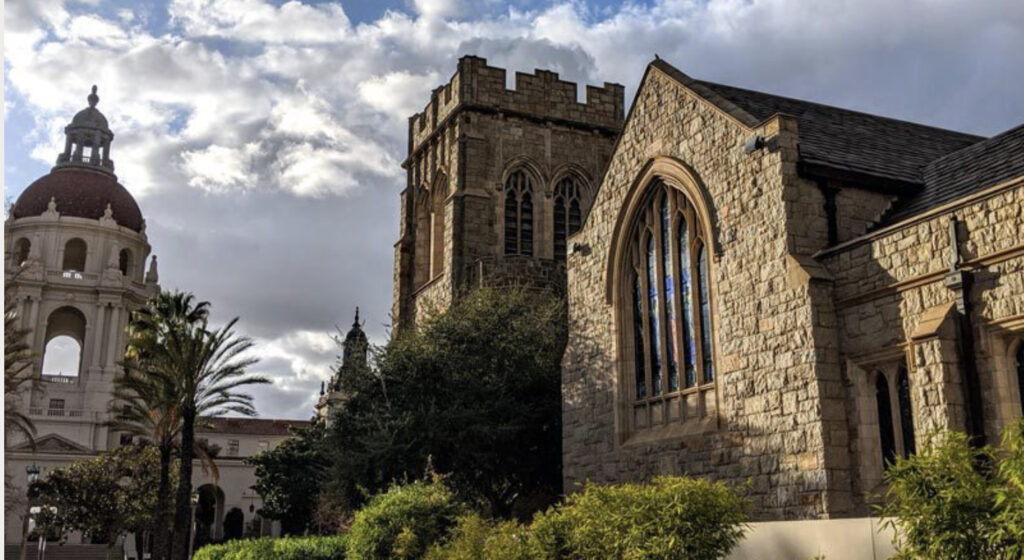
He said, “[Their] conservative value system– there’s a few components that hinders someone from being able to come out to their family and to their community.” He emphasized how machismo is embraced in the Latino community.
“I think on the male aspect, there is this expectation of masculinity to be part of your existence. And that somehow being queer and masculine is not possible, even though it’s very much possible, but it’s still seen as that. That you cannot be both. That you’ve gotta be masculine and also have to be ‘straight’ for the sake of procreation,” he said.
Diaz also recognizes how conservative values affect women. “For the female aspect, there’s often this recognition that the female has to find a spouse or a partner and build a life with primarily a straight man, so you can carry out your wife duties and your marriage duties because that is what the other ancestors have done.”
Diaz said that there is a hope out of tradition that all of the next generation will do what the previous generations have done.
DISAGREEMENTS IN THE CHURCH
Discourse between affirming and non-affirming churches have divided the Church. Thomas Diaz said that it is important to recognize that churches have different theological frameworks when it comes to the Scriptures.
He said, “It is an ongoing movement in this country. I think we just have to settle that that’s how many of the vast churches and institutions running currently and hold two various interpretations and theological frameworks. And if you are still struggling [to see] what it means to be an affirming church, let me show you.”
Ronald Pierce, a professor of biblical and theological studies at Talbot School of Theology, has taught the subject of sexuality and gender at Biola University for almost fifty years. He encourages the Church to practice “Christlike acceptance” toward the LGBTQ+ community.
Pierce points to the apostle Paul in Romans 14 who summarized Christlike acceptance in four statements: (1) Be accepting of one another without quarreling over disputable matters (14:1–9), (2) Stop despising and passing judgment on each other (14:10–23), (3) Sacrifice your liberties for those who are weaker in faith (15:1–6) and (4) Accept one another as Christ accepted you for God’s glory (15:7–13).
In a divided Church today, Paul’s example is a model for God’s children. The LGBTQ+ community may misperceive Christians and the Church when we “welcome” them into the Church but do not treat them equally. Our intentions should come from a place of love and grace.
Exercising our freedom found in Christ is shown through love for others as He loved us. Honoring all of God’s children includes loving those you disagree with, and there are many biblical examples of this.
Thomas Diaz said that the LGBTQ+ community has survived a history of unacceptance from the church.
“I was starting to feel scared [to even think] about coming out because of what the church was saying about same-sex marriage. And they were not communicating that in a very friendly way.”
Diaz recalled a priest saying that “gay people are already tasting the fire of Hell in their lives.”
However, he acknowledges that the church has made progressive steps. He mentioned, “[It was] a bold move for Pope Francis to say that [homosexuality] is not a crime. I understand when the LGBTQ+ community says ‘It’s not enough,’ but the Catholic Church decriminalizing homosexuality is a huge thing. And that happened in our lifetime.”
Diaz received some criticism when he came out concerning the heteronormative family structure.
“When they find out about my identity, they say, ‘How’s that possible?’ They feel like you are not obeying the [order] to create your own family and have your own children. And I said, ‘Who said I am not working [towards] that? You’re just [under] the impression of a model that’s traditionally used in this country. But there are several ways to get there.’” He said that this is the dialogue he hopes to model in his ministry at All Saints Church.
INCLUSION IN THE CHURCH
According to Diaz, All Saints Episcopal Church has four core values– radical inclusion, joyful spirituality, ethical stewardship and courageous justice.
“Our radical inclusion core value helps us build ministry and programming. [We] intentionally invite folks out [who are] left on the margins to be part of our community,” Diaz said, “ It [helps] us to be pretty progressive in our attempt when it comes to our social activism. When it comes to things that we are going to stand for or against, all comes through that lens of progressive intent.” The first line of their mission statement says, “We are an Episcopal Church, walking with a revolutionary Jesus.”
When it comes to disagreements with his beliefs, Diaz has a certain approach. First, he would hold the space for disagreement and for working across differences. He emphasizes the importance of holding space for people to feel fully safe to explore discourse. Second, to the opposing side, he would ask, “Are you willing to listen to my story?”
“I have very conservative folks in my family who do wanna debate my sexuality. You’re gonna find that we have things that we agree with, things we are going to disagree with, and things that we’re still figuring out,” Diaz said.
Diaz and All Saints Church hope to display what it means to live out the biblical mandate of loving God and loving your neighbor.
He said, “We are open to healthy debates. But really it’s about sharing and witnessing what it means to be an affirming space for all of God’s children. If we can get [to an] agreement with that, then we can handle the rest later. But if we can’t get there, it doesn’t mean we need to shut the door. It just means that we gotta give it some more time.”
Although religion has posed issues of coming out toward the queer community, a growing number of affirming churches today welcome the LGBTQ+ community. All Saints Church has a ministry specifically for LGBTQ+ people. They believe that being gay, transgender, or queer in any way is not a sin, but is “an expression of the wonderful diversity of God’s creation.” Many evangelicals today not only support the queer community but also come out as queer themselves. Elizabeth Black, an Afro-Latina bisexual minister and evangelist, co-founded Kaleidoscope, an organization that provides “LGBTQ+ People opportunities to engage with tangible expressions of Christ.” They envision seeing LGBTQ+ people experience Christ and mature in the Christian community. Affirming institutions like these free the queer community, welcoming them without any barriers.
Although there are disagreements among the Church community, God still calls his children to love and not judge the queer community.
“Being queer does not make me less of a creation of God,” Amanda said.
“There is a resiliency that is built in this community. We have so many other stories of those in our community. It’s not just the doomsday narrative,” said Thomas Diaz.
